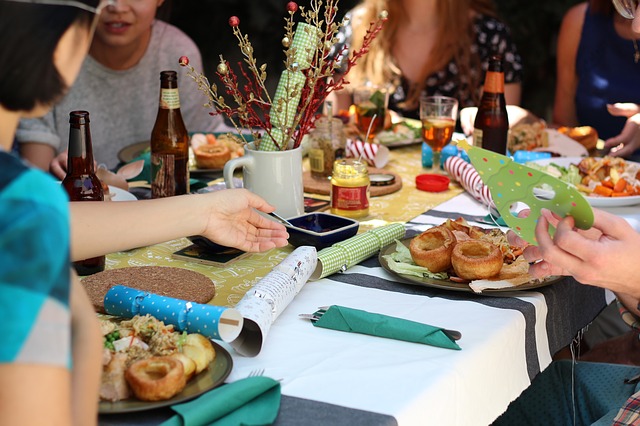
- transition
Home for the Holidays: Tips for Healthy Transitions for Individuals with Learning Differences
The holidays may be one of the more stressful times of the year for individuals with learning differences and their families - but, it does not have to be that way. Here are tips and resources from CIP's staff on making the most out of your holiday season.
With planning, realistic expectations, and a positive attitude, students and their families can avoid and/or reduce stress from the changes in routine that the holidays bring and create a better experience for the entire family. We encourage educators to work with each student to identify specific recommendations for short-term transitions such as holidays. The more prepared the better. For example, CIP students develop a wellness plan, a budget to follow, social activities to attend in the community, and chores to complete around the house. These recommendations are specific to each student's needs to ensure they do not regress to old habits.
Develop a Weekly Schedule
A schedule can be very helpful during the holidays since students are typically accustomed to following a routine. We recommend developing a schedule together with the transition home guidelines to identify expectations and plan for fun events. This benefits students since they can get overwhelmed with excitement or stress from the schedule changes. After you agree to the weekly schedule, post the schedule in their room as a visual reminder of their plan and/or add reminders to their cell phones. This will help students maintain their executive function skills.
Empower Independent Decision-Making
Lastly, we recommend encouraging your student to problem-solve and make choices independently. Self-advocacy will empower your student and help them strengthen their confidence. Moreover, students will start to learn how to communicate with their parents as adults. This helps students take the necessary steps toward leading fulfilling and productive lives independently.
Change Your Perspective
For students or individuals with learning differences themselves: Now is the time for you to show off the skills you've learned since going away. Here's a refresher on how this can be done:
- Assert yourself
- Act mature
- Take initiative
- Self-advocate
- React differently
- Self-control
- Listen to feedback; don’t be defensive
- Ask questions
Show Your Skills
- Cooking for your family
- Cleaning up after yourself
- Personal hygiene
- Getting up at a reasonable time
- Make your own fun
- Transport yourself
- Do your own laundry
Top 5 Health & Wellness Goals
1. Exercise Regularly with a Personalized Fitness Plan
If you don’t have access to your regular gym, be creative and explore the outdoors or try a new activity that’s local to your hometown!
2. Schedule Weekly Menu Planning and Grocery Shopping
Set a time each week to fill out the sheets, shop for your food, and plan to succeed!
3. Cook!
Whether just for your own meals or for your family/friends, keep on cooking! Try the new recipes you’ve collected during this term and/or practice old favorites to keep improving your skills!
4. Be Mindful and Present Regularly!
The holidays can be a stressful time of year so make sure to find time to use your stress management tools! Find meditations or other stress relief techniques on YouTube and aim to listen to one as needed, at least once per week!
5. Have Fun!
The holidays are a wonderful special time of year. Make sure to find time for laughter and joy. Have a great vacation and enjoy this time with your family and friends.
Show Your Social Skills
CIP's social skills department works with students in advance to help them plan for a successful transition to home and back. Below are some out-of-the-box ideas you can use right now!
- Parents can encourage and motivate their students by celebrating small successes.
- Compile a list of small goals related to social etiquette and role-play common scenarios that might occur
- Identify any potential triggers in advance and develop appropriate coping mechanisms.
- Email and use social media to connect with friends in the community in advance to suggest a get-together.
- Take photos back to show what you've been up to. As they say "a picture is worth 1,000 words."
- Contact your families in advance to start planning activities and getting a sense of what the family's agenda is. Advocate for planned downtime if need be.
Shock and Awe Strategy
Do things without being asked!
About College Internship Program
The College Internship Program is a comprehensive transition program for young adults on the Autism Spectrum and with Learning Differences. Our Mission is to inspire independence and expand the foundation on which young adults with Autism, ADHD, and other Learning Differences can build happy and productive lives.
Related Articles
- Supporting Your First-Year Neurodivergent College Student: A guide for parents with young adults with ASD, ADHD, and other Learning Differences
- Moving into 2026: A Transition Guide for the New Year
- Building Independence: Life Skills & Independent Learning for Neurodivergent Young Adults
- The Impact of Transitions on Neurodivergent Young Adults
- Autism In Real Life, An Interview with CIP President Dan McManmon

